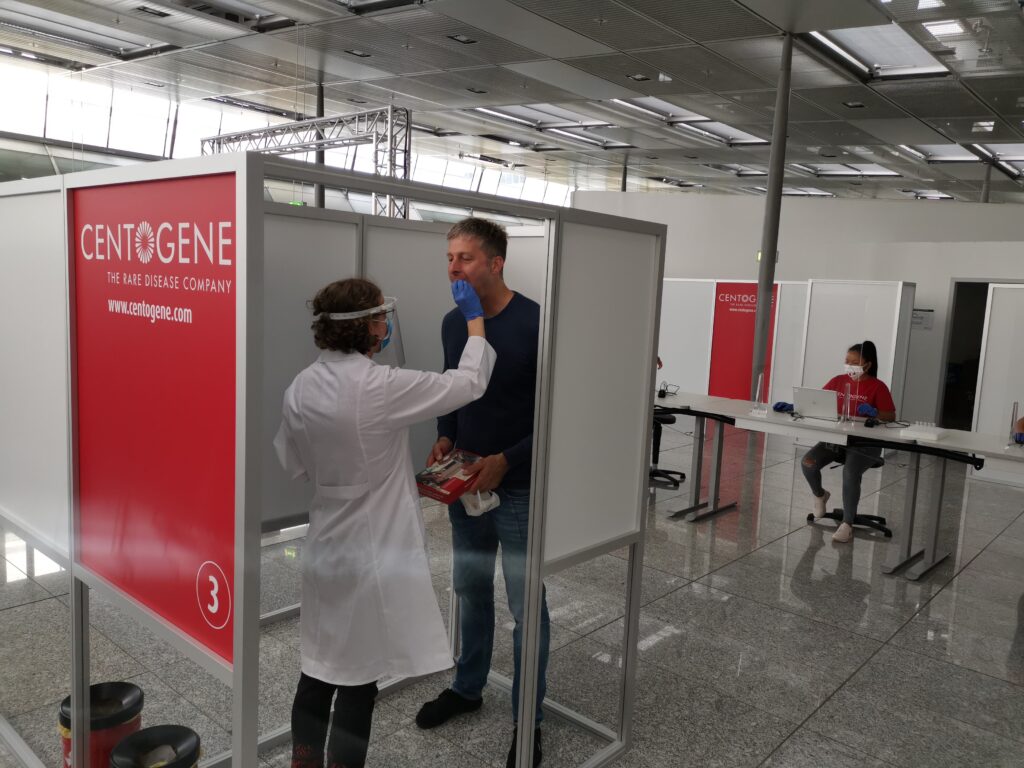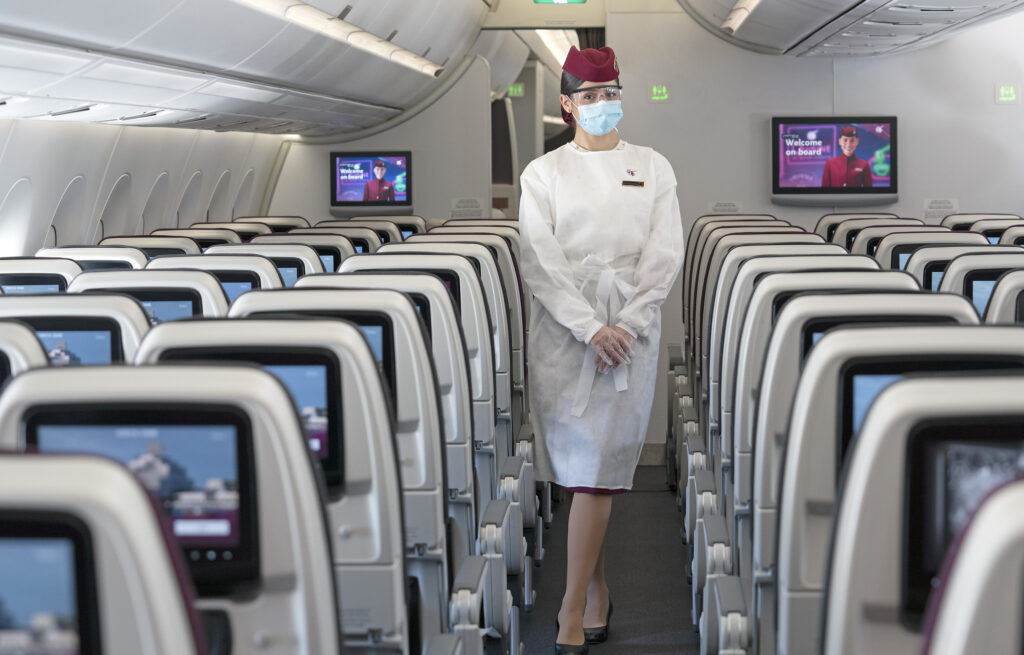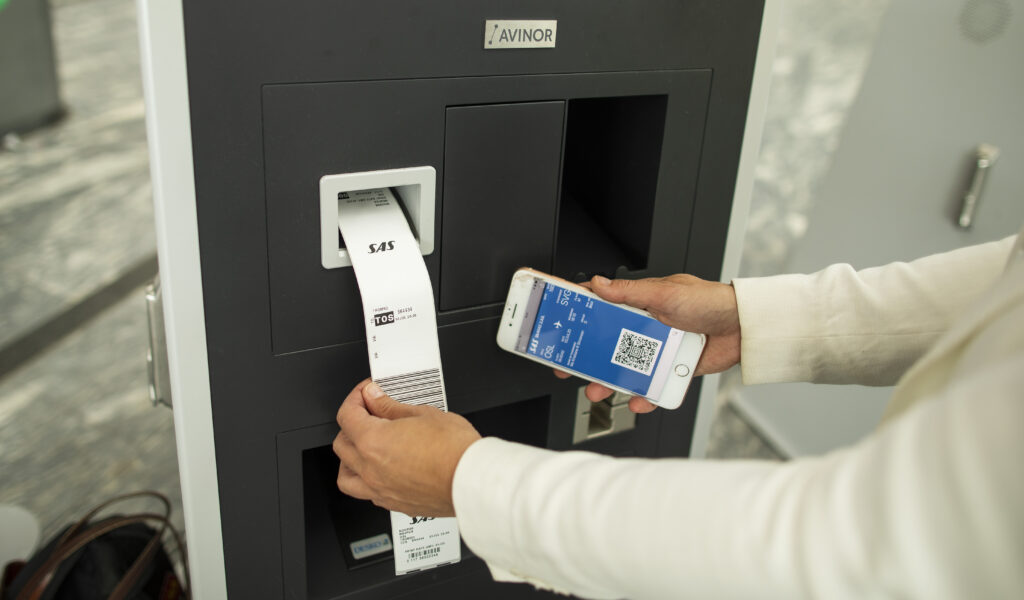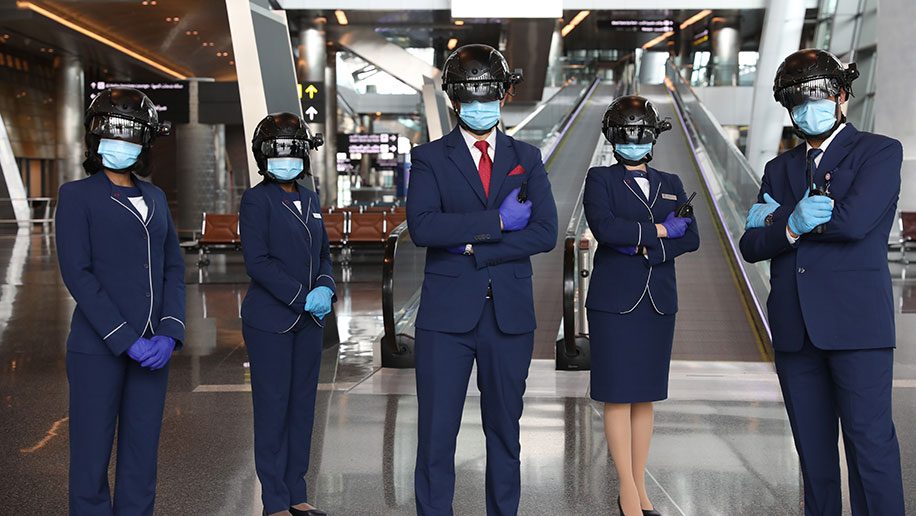From wellness ambassadors to Covid-19 testing, airports and airlines around the world are bringing out new initiatives to make air travel safer. Sam Ballard reports
1. Etihad Wellness Programme and Covid-19 Risk Assessment Tool
Etihad Airways has launched Etihad Wellness, a new programme to help get concerned customers back in the air.
Developed as a means of communicating the actions of the airline, Etihad Wellness incorporates an online guide (etihad.com/wellness), a dedicated email address for personalised and multilingual queries ([email protected]) and, in the coming weeks, Wellness Ambassadors at Abu Dhabi airport.
Once travel restrictions are lifted, the airline will have a Wellness Ambassador on board every flight, complementing the roles performed by cabin crew.
Etihad has also developed a Covid-19 risk assessment tool for its passengers. Created in partnership with Medicus AI, an Australian healthcare technology company, the new technology comprises of 22 questions and takes just five minutes to complete.
The questions are based on World Health Organisation guidelines and are updated daily. The aim of the tool is to make passengers aware of their individual probability of having contracted the virus before they travel.
The tool is available on etihad.com and will soon be added to the company’s mobile app.
2. Lufthansa Covid-19 testing at Frankfurt and Munich
Lufthansa is offering passengers arriving at Frankfurt and Munich airports tests for Covid-19. The move, which comes on the back of a partnership with Centogene and Medicare and will help passengers “avoid being quarantined”, according to Dr Björn Becker, senior director product management ground and digital services for Lufthansa Group.
“Results are usually available within four to five hours after testing and are linked to the customer’s flight ticket. This also makes it easier for them to travel safely to other countries worldwide that accept a certified PCR corona test as well to avoid quarantine.”
 Lufthansa says that customers in Frankfurt are required to register for the test in advance, either online at centogene.com/corona or directly at the test centre. Individuals will receive the result of their test via an app link.
Lufthansa says that customers in Frankfurt are required to register for the test in advance, either online at centogene.com/corona or directly at the test centre. Individuals will receive the result of their test via an app link.
“To ensure a smooth process, it is recommended that customers take the PCR Covid-19 test 24 hours prior to departure from Frankfurt airport or immediately after arrival.
“The test facility, located between Terminal 1 and the ‘Square’, will evaluate up to 380 tests per hour, in a certified laboratory also located at the airport. Openings hours are from Monday to Friday, between 9am and 7pm, and on Saturdays and Sundays, between 9am and 5pm.
“In Munich, tests are available at the local airport clinic MediCare, located in Terminal 1. This testing facility is easy to reach for those travelling through Lufthansa’s Bavarian hub and passengers are also advised to request a test in advance from [email protected], in order to avoid delays. The result of each test will be available within four hours.”
How much does it cost? Travellers using Centogene’s service at Frankfurt airport will have to pay up to €139 for the fast-track test, and an additional €9 to attach the verified result to their passport details. A slower test that provides results in six to eight hours is available for €59.
According to the Financial Times, for people travelling from Germany to countries such as the United Arab Emirates, the pre-flight test would be sufficient, while Chinese authorities might require an additional test upon landing.
3. Edinburgh airport introduces antimicrobial security trays
Edinburgh airport has ordered security trays from Leidos, a science solutions and services company, that are designed to “mitigate the spread of bacteria from person-to-surface contact”.

The trays prevent the reproduction of different bacteria including “staphylococcus aureus (staph), E. coli, and antibiotic-resistant bacteria like MRSA and VRE, by 99.99 per cent”.
“The antimicrobial security trays must be cleaned according to normal hygiene procedures, but the additive will not wash off or wear away,” Leidos told Business Traveller. The airport will also be using “fogging” machines to sanitize luggage trolleys.
4. United introduces CleanPlus
United has introduced CleanPlus, a “commitment to delivering industry-leading cleanliness plus putting health and safety at the forefront of your experience”.
The strategy is delivered in three ways: cleanliness, prioritising well-being and “innovating for a healthier tomorrow”. Primarily, it will involve partnering with Clorox, the cleaning company, to introduce a tougher regime for disinfecting high-touch areas like arm rests, lavatories, seat-back screens and seat belts.
United requires all travellers to wear a face mask during the flight, apart from when eating or drinking. Passengers will also be given an “all-in-one” snack bag – for premium passengers in flights under two hours and 20 minutes and for everyone in domestic flights over.
The company is also rolling out its contactless check-in and making passengers declare that they are symptom free before boarding.
5. British Airways ‘nose to tail’ cleaning
The UK’s flag carrier has said it will be cleaning its aircraft from “nose to tail” every day and key surfaces after every flight. The cabin will get fresh air every two to three minutes which is pumped through HEPA air filters that kill 99.9 per cent of microscopic bacteria and virus clusters.
6. Bournemouth airport becomes first in UK to implement thermal detection technology
The south-coast hub is installing infrared cameras that measure body temperature, to help identify people who have a fever before they travel.
The cameras, which were initially installed at staff entrances, are due to be rolled out across the airport – including arrivals. This will allow border staff to stop passengers with a high temperature. The technology is also being trialled at Heathrow and Manchester, according to the BBC.
7. Qatar Airways adds protection for crew and passengers
Qatar Airways has introduced PPE for all flight crew and passengers, including face shields for children and adults.
Passengers flying from Doha will receive their face shields when checking in. At other destinations they will handed over at boarding gates. Crew will be supplied with disposable gowns.
 On board, all Qatar Airways passengers will be provided with a free protective kit. Inside a ziplock pouch they will find a single-use surgical face mask, large disposable powder-free gloves and an alcohol-based hand sanitiser gel. Business class customers will also be offered an additional 75ml sanitiser gel tube.
On board, all Qatar Airways passengers will be provided with a free protective kit. Inside a ziplock pouch they will find a single-use surgical face mask, large disposable powder-free gloves and an alcohol-based hand sanitiser gel. Business class customers will also be offered an additional 75ml sanitiser gel tube.
Those in economy must wear their face shield and mask at all times except when eating or drinking. Those in business can do so at their own discretion because of the extra space they have.
8. Norwegian Airports implement ‘touchless travel’
Avinor, the company behind Norway’s 44 state-owned airports, has implemented new technology to allow passengers to check in, drop their bags off, pass through security and board their flight without coming in to contact with another person or machine.
 The touchless experience, which has been introduced by Amadeus, will be available initially at Norway’s four hub airports – beginning with its introduction at Oslo from July 6, followed by Bergen, Stavanger and Trondheim.
The touchless experience, which has been introduced by Amadeus, will be available initially at Norway’s four hub airports – beginning with its introduction at Oslo from July 6, followed by Bergen, Stavanger and Trondheim.
Brede Nielsen, Group CIO at Avinor, says: “Given our unique geography many Norwegians depend on their local airport for both business and leisure travels. Several domestic routes serve more than a million passengers every year. We operate several of Europe’s top 20 busiest routes within Norway.”
He adds: “Our passengers can count on us to take necessary measures according to advice from Norwegian health authorities. This reduces the risk of being exposed to infectious virus to an absolute minimum and we are confident that travelers will welcome our new touchless approach.
“We’ve worked quickly and flexibly with Amadeus and ICM to build and deploy new technology to make it both safer and easier to fly from our airports. We’re now in a strong position to serve increased numbers of passengers traveling during the summer period.”
9. Doha airport staff given smart screening helmets
Doha Hamad International airport (HIA) in Qatar has deployed wearable intelligent technology, robots and temperature screening as part of new coronavirus-fighting measures ahead of greater numbers of arriving international visitors.
The Smart Screening Helmet with built-in augmented reality display allows airport staff to record and analyse people’s temperature through infrared thermal imaging and artificial intelligence.
 Visitors to the airport will also see fully autonomous robots emitting a concentrated UV-C light to eliminate the majority of infectious microorganisms. The machines will be deployed in “vulnerable high passenger flow areas to reduce the spread of pathogens”.
Visitors to the airport will also see fully autonomous robots emitting a concentrated UV-C light to eliminate the majority of infectious microorganisms. The machines will be deployed in “vulnerable high passenger flow areas to reduce the spread of pathogens”.
10. Manchester airport offers pre-booked security slots
Manchester airport has become the first airport in the UK to let guests pre-book a free 15-minute security slot, as part of a new trial.
The trial is part of a series of measures introduced by Manchester Airport Group (MAG). Passengers will benefit from access to a dedicated lane straight to the security checkpoint and will be able to reach the departure lounge quicker. This approach will also allow the airport to manage the volume of passengers coming through security more efficiently and help keep queues shorter, thus maintaining social distancing.
11. Vienna airport begins PCR testing
Vienna International airport is now offering coronavirus tests that give a result within a period of “about three to six hours”. The tests are a “polymerase chain reaction” test, otherwise known as a PCR test and cost €190. Those given the all clear will be given a certificate and will not have to self-isolate for 14 days.
For people in the UK wanting to get checked before they go on holiday, Nomad Travel is offering Covid-19 self-test kits and antibody tests.
12. Changi airport goes contactless
Singapore’s Changi airport is to progressively install new solutions to make check-in fully contactless before they travel. The new innovations include “proximity touch screens” and infrared sensors for bag drops, as well as automated immigration lanes with facial and iris recognition technology to replace fingerprint scanning.
Tan Lye Teck, CAG’s executive vice president for airport management, says: “Passengers will expect airports to deliver the highest standards of safety and hygiene to give them peace of mind during their journey, and we will rapidly bring on board new measures as we go into a new normal for air travel… CAG will work with other aviation partners to instill a high sense of confidence among travellers going through Changi airport when air travel eventually resumes.”
What’s coming next? Trend reports available to download HERE



